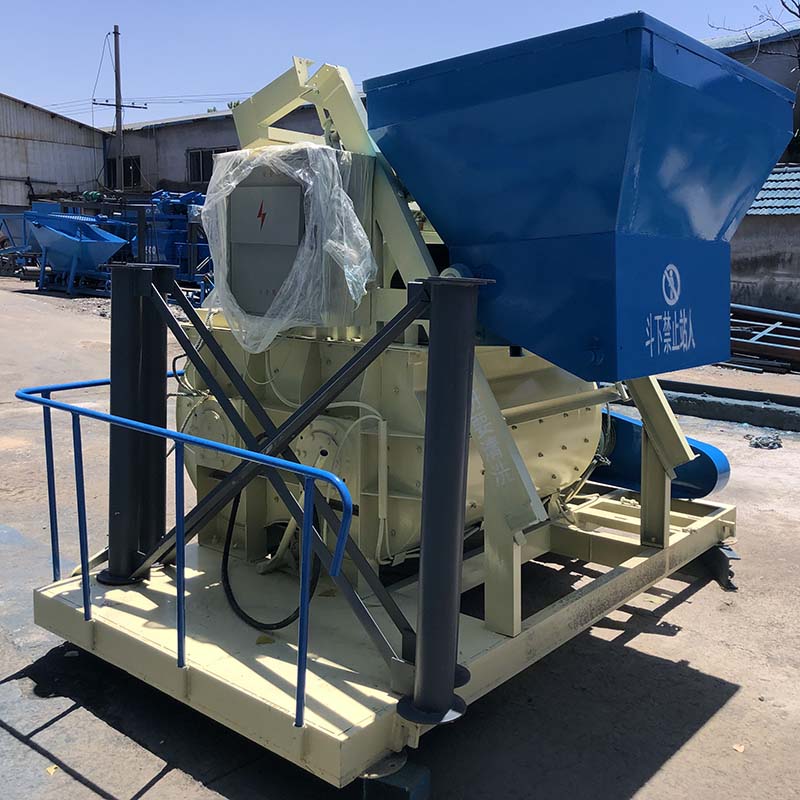
Image source:Aiwei block machine
Introduction
The construction landscape in Zimbabwe is undergoing a transformative journey, fueled by urbanization, infrastructure development, and a commitment to sustainable building practices. At the heart of this transformation lies the evolution of block making machines, which are embracing technological advancements to revolutionize the way blocks are produced. In this article, we delve into the realm of technological progress within block making machines in Zimbabwe, presenting case studies that showcase innovative solutions, improved efficiency, and a greener approach to construction.
1. Interlocking Block Technology: Redefining Efficiency and Sustainability
Case Study: EcoTech Bricks
EcoTech Bricks, a Zimbabwean manufacturer, has harnessed interlocking block technology to pioneer a sustainable approach to construction. Their innovative machines produce blocks with unique designs that interlock without the need for mortar. This technology not only accelerates construction timelines but also significantly reduces material consumption.
Benefits:
- Resource Efficiency: Interlocking blocks use less cement compared to traditional blocks, resulting in a lower carbon footprint and reduced material costs.
- Energy Savings: The absence of mortar reduces the need for cement and water, leading to substantial energy savings during production.
- Speedy Construction: The interlocking design allows for faster construction, enabling projects to be completed more efficiently.
2. Automation: Elevating Precision and Productivity
Case Study: RapidBrick
RapidBrick, a Zimbabwean manufacturer, has embraced automation to optimize block production processes. Their automated machines handle raw material mixing, molding, and curing with precision, reducing the margin for error and increasing overall productivity.
Benefits:
- Consistency: Automated processes ensure consistent block dimensions and quality, reducing wastage and improving construction outcomes.
- Labor Savings: Automation minimizes the need for manual labor, leading to reduced labor costs and improved operational efficiency.
- Enhanced Quality: Automated machines produce blocks with uniform properties, contributing to better structural integrity of constructed buildings.
3. Solar-Powered Machines: A Sustainable Approach
Case Study: GreenTech Blocks
GreenTech Blocks, a Zimbabwean manufacturer, has incorporated renewable energy into their block making machines, harnessing solar power for production processes. This innovation reduces reliance on fossil fuels, minimizes greenhouse gas emissions, and aligns with Zimbabwe’s commitment to sustainability.
Benefits:
- Environmental Impact: Solar-powered machines significantly reduce carbon emissions, contributing to a greener construction ecosystem.
- Energy Savings: Solar energy is a renewable resource, ensuring a consistent and sustainable power source for block production.
- Long-Term Investment: While initial setup costs may be higher, solar-powered machines offer long-term savings through reduced energy expenses.
4. Data-Driven Insights: Optimizing Production through IoT
Case Study: SmartBlocks Ltd.
SmartBlocks Ltd., a Zimbabwean manufacturer, has embraced the Internet of Things (IoT) to enhance their block production processes. By integrating sensors and data analytics, they gather real-time insights on machine performance, production efficiency, and quality control.
Benefits:
- Predictive Maintenance: Sensors monitor machine components and provide real-time data, allowing for predictive maintenance and minimizing downtime.
- Quality Control: Real-time data analytics ensure that blocks meet predetermined quality standards, reducing wastage and improving overall product quality.
- Efficiency Enhancement: Data-driven insights enable manufacturers to identify process inefficiencies and optimize production processes for higher productivity.
5. Collaborative Innovation: Addressing Challenges with Local Expertise
Case Study: ZimBrick Innovations
ZimBrick Innovations, a collaborative effort between Zimbabwean manufacturers and engineers, has focused on addressing local construction challenges through innovative solutions. They have developed modular block making machines that can be transported to remote construction sites, overcoming logistical obstacles.
Benefits:
- Accessibility: Modular machines can be transported to areas with limited infrastructure, enabling construction in remote and underserved regions.
- Local Solutions: Collaborative efforts involve local expertise, addressing challenges that are unique to Zimbabwe’s construction landscape.
- Empowerment: Such initiatives empower local communities, creating employment opportunities and fostering self-sufficiency in construction practices.
Conclusion
As Zimbabwe embraces a future marked by sustainable development and efficient construction, the evolution of block making machines stands as a testament to the industry’s commitment to progress. Through case studies that highlight interlocking block technology, automation, solar-powered machines, data-driven insights, and collaborative innovation, it becomes evident that technology is shaping the future of block production in Zimbabwe. These advancements not only enhance efficiency and quality but also contribute to environmental preservation and sustainable practices. By learning from these case studies, the construction industry in Zimbabwe can continue to pave the way for a resilient, efficient, and eco-conscious built environment, ensuring a brighter future for generations to come.
